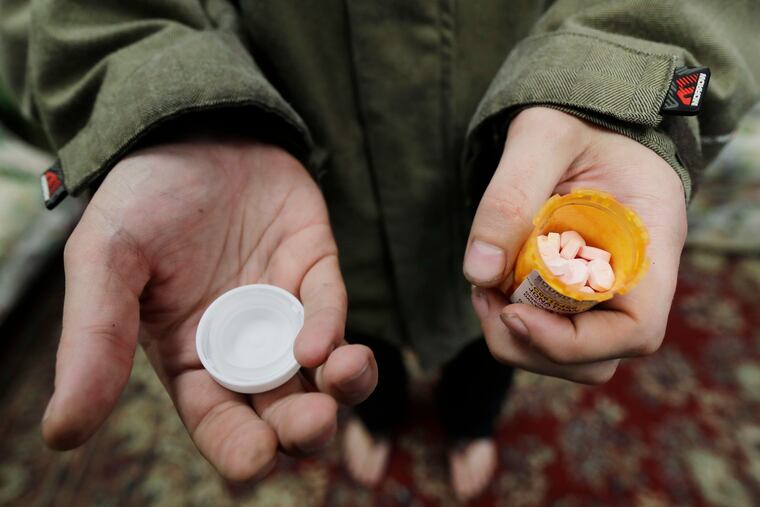Buprenorphine saves lives. Why is a Pennsylvania senator trying to make it harder to obtain?
Senate Bill 675 increases the burden of those suffering from opioid use disorder and perpetuates the opioid epidemic.

This past year, we reached a harrowing milestone of 100,000 opioid overdose deaths in the United States. Throughout the pandemic, the detrimental impact of opioids has accelerated. Now, we regularly see the presence of hazardous drugs such as fentanyl polluting the drug supply.
As we all know, the COVID-19 pandemic has pushed the health-care system to its breaking point, making it more difficult for many patients dealing with opioid use disorder to obtain treatment. Yet Pennsylvania State Sen. Michele Brooks (R., Mercer) stated in January 2021 that she intends to make it even more difficult by reintroducing Senate Bill (S.B.) 675, which passed the state Senate on its first attempt but failed in the House. With likely Republican gains in state elections this November, the bill could pass if reintroduced.
S.B. 675 reduces access to buprenorphine, a lifesaving opioid-use disorder treatment. The legislation makes it more difficult for providers to obtain certification to administer buprenorphine, and those who do not abide by the bill would risk losing their license. These measures increase the burden of those suffering from opioid use disorder and perpetuate the opioid epidemic.
As a medical student in Philadelphia, working and volunteering throughout the city, I have seen firsthand the impact the opioid crisis has had on our community. One of the most effective tools to treat opioid use disorder and prevent overdoses is buprenorphine, FDA-approved medications known by the brand names Suboxone and Subutex. Buprenorphine reduces withdrawal symptoms, which helps people stop taking heroin, fentanyl, and the like. It is also much safer than opioids — buprenorphine has a “ceiling effect,” where higher doses are not associated with respiratory depression, making it extremely difficult to overdose on. Buprenorphine has rarely been the primary drug linked to overdose cases.
S.B. 675 would impose a requirement that any physician willing to prescribe this medication pay a $500 fee to the Pennsylvania Department of Drug and Alcohol Programs, and the bill includes vague language threatening suspension of medical licensure for violations. While this may seem like a minor roadblock, it is a hurdle that will reduce access to this potentially lifesaving medication.
Current barriers — including the COVID-19 pandemic, the stigma surrounding opioid use disorder, and the requirement that physicians obtain waivers or additional certifications to prescribe buprenorphine — have led to few patients receiving treatment in Pennsylvania.
This bill would create an additional barrier by requiring that any patient prescribed buprenorphine be enrolled in a certified addiction treatment program. Yet that isn’t an option for many people in Pennsylvania, who cannot access these programs due to unreliable transportation, long wait-lists, low socioeconomic status, being uninsured, or lacking appropriate child care.
If passed, S.B. 675 would lead many patients to obtain buprenorphine illegally off the street, where it could be contaminated with other substances — or continue to use more deadly opioids.
» READ MORE: 100 years of dehumanizing opioid users must end | Opinion
When patients with diabetes are prescribed insulin, we do not force them to enroll in nutrition or exercise classes. And insulin isn’t harmless: If misused or used in large quantities, insulin has the potential to be equally deadly as opioids, causing coma or death.
Trusted medical organizations such as the American College of Medical Toxicology and the American College of Emergency Physicians have endorsed removing any waiver requirements for buprenorphine. If we cannot trust physicians to act in a patient’s best interests, then who can we trust?
Addiction and recovery are complex issues, and the road that patients take is often arduous. Opioid use disorder is affecting all sorts of families in our region. If your loved one was struggling with addiction, wouldn’t you want to make it easier for them to get help?
I urge you to contact your legislator and encourage them to oppose any legislation that places an undue burden on a group that is already severely in need.
Nicholas S. Imperato is a current fourth year Doctor of Osteopathic Medicine candidate and Master of Public Health candidate in Philadelphia. nsimperato@gmail.com